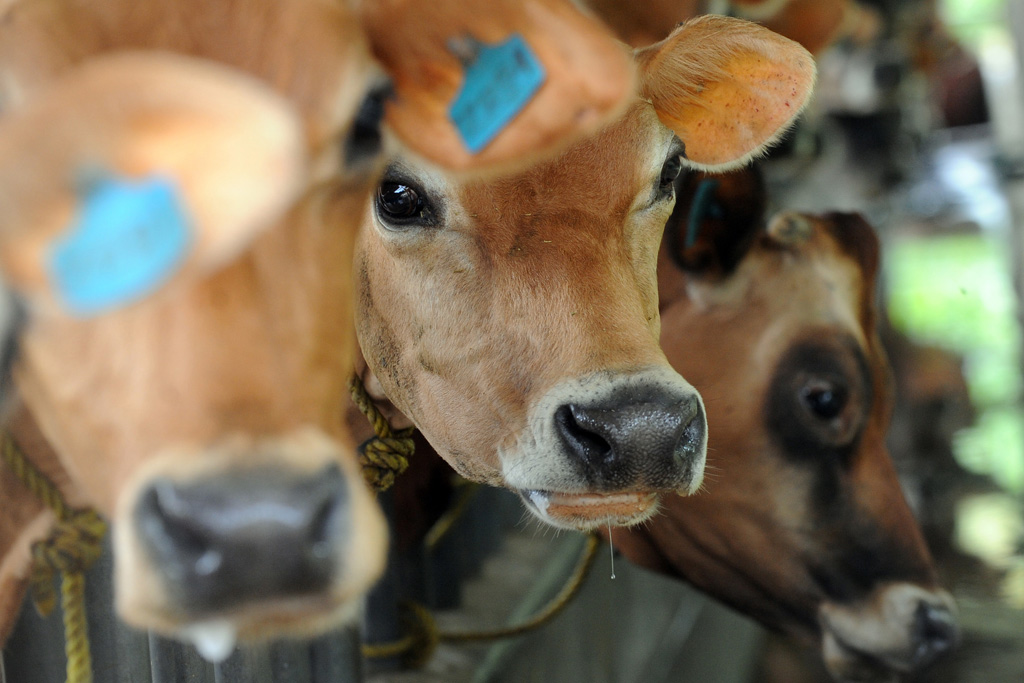With UN Support, More Countries Confronting Threat of Drug-Resistant ‘Superbugs’
HEALTH, UNITED NATIONS, 20 Nov 2017
UN News Centre – TRANSCEND Media Service
17 Nov 2017 – Efforts to stem the spread of antimicrobial resistant pathogens on farms and in food systems are gaining strength, thanks to strong backing by governments and technical support from the United Nations to boost national capacities, the Organization’s food security and health agencies reported Friday.
According to the first annual survey conducted by FAO (the Food and Agriculture Organization of the UN), WHO (World Health Organization) and a global intergovernmental body on animal health (World Organization for Animal Health), more than 6.5 billion people – over 90 per cent of the world’s population – now live in country that has in place, or is developing a national action plan on antimicrobial resistance (AMR).
“Nearly all of these plans cover both human and animal health in line with the recommended ‘one health‘ multisectoral approach,” said the UN Food and Agriculture Organization (FAO) in a news release announcing the findings.
The report’s release comes at the end of World Antibiotic Awareness Week , which kicked off this on Monday 13 November.

A row of cattle waiting to be fed at the National Livestock Development Board Farm in Mahaberiyathenna, Sri Lanka.
Photo FAO
Antimicrobial medicines – antibiotics, antifungals, antivirals or antiparasitics – are widely used in livestock, poultry and aquaculture operations to treat or prevent diseases.
However, their over-use and misuse, such as for “promoting growth” is leading to the emergence of microbes resistant to these drugs, making the diseases they cause difficult or in cases, impossible, to treat. Humans exposed to these antimicrobial resistant pathogens are also affected in the same way.
There is progress, but there are also gaps
Since the survey was completed last year (2016), more countries have unveiled plans to tackle AMR.
Yet despite the progress, the global push to address this problem – which is taking epic proportions – is still in its early stages.
“There are weak points that still need to be shored up – particularly in the food and agriculture sectors of low- and middle-income countries, key battlegrounds against ‘superbugs’ resistant to conventional medicines,” FAO cautioned.
In particular, there are major gaps in data regarding where, how and to what extent antimicrobials are being used in agriculture; also systems and facilities for tracking the occurrence of AMR in food systems and the surrounding environment need to be strengthened.
According to Ren Wang, FAO Assistant Director-General for Agriculture and Consumer Protection, the UN food security agency, along with its partners, is using its expertise and experience to assist developing countries.
“The goal is to help them develop the tools and capacity to implement best practices in animal and crop production, reduce the need for antimicrobials in food systems, develop surveillance capacity to assess the scale of AMR and efforts to control it, and strengthen regulatory frameworks to minimise the misuse of antibiotics while simultaneously ensuring access to drugs for treating sick animals,” he added.
DISCLAIMER: The statements, views and opinions expressed in pieces republished here are solely those of the authors and do not necessarily represent those of TMS. In accordance with title 17 U.S.C. section 107, this material is distributed without profit to those who have expressed a prior interest in receiving the included information for research and educational purposes. TMS has no affiliation whatsoever with the originator of this article nor is TMS endorsed or sponsored by the originator. “GO TO ORIGINAL” links are provided as a convenience to our readers and allow for verification of authenticity. However, as originating pages are often updated by their originating host sites, the versions posted may not match the versions our readers view when clicking the “GO TO ORIGINAL” links. This site contains copyrighted material the use of which has not always been specifically authorized by the copyright owner. We are making such material available in our efforts to advance understanding of environmental, political, human rights, economic, democracy, scientific, and social justice issues, etc. We believe this constitutes a ‘fair use’ of any such copyrighted material as provided for in section 107 of the US Copyright Law. In accordance with Title 17 U.S.C. Section 107, the material on this site is distributed without profit to those who have expressed a prior interest in receiving the included information for research and educational purposes. For more information go to: http://www.law.cornell.edu/uscode/17/107.shtml. If you wish to use copyrighted material from this site for purposes of your own that go beyond ‘fair use’, you must obtain permission from the copyright owner.
Read more
Click here to go to the current weekly digest or pick another article:
HEALTH:
- U.S. Terminates Funding for Polio, H.I.V., Malaria and Nutrition Programs Around the World
- Autism, Made in the USA
- Big Pharma Is a Big Menace to Global Health
UNITED NATIONS: